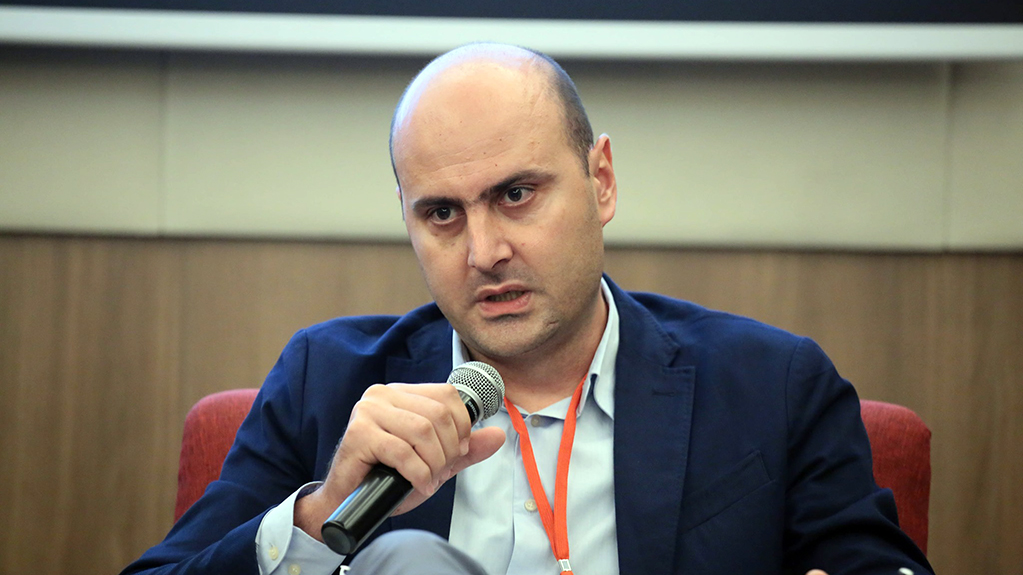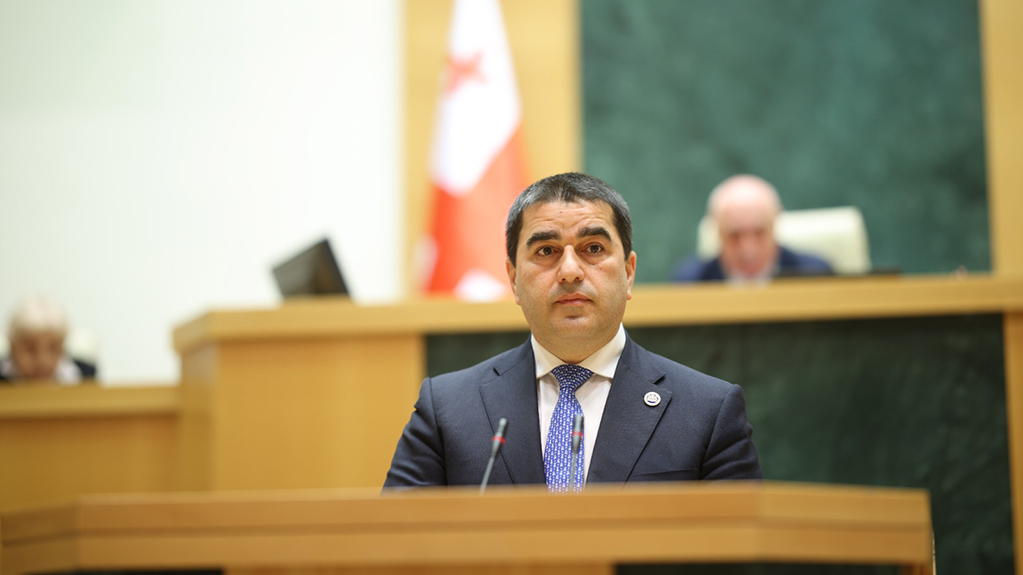"We must prepare to become a member of the European Union at a time when we will gain, not lose or harm ourselves," said Shalva Papuashvili, the chairman of the illegitimate parliament and one of the leaders of the Georgian Dream.
News
In an interview with Rustavi 2, Papuashvili stated that Georgia needs to join the EU for economic development and questioned whether the country would develop economically by imposing sanctions on Russia.
“We calculated that we would face an economic decline of up to 18%. If we had believed in the EU two years ago, we would be an impoverished country today. Is this our European integration?” Papuashvili said.
According to him, by 2030, Georgia will be the most prepared country for EU membership.
“Whatever decision any EU country makes at some stage, we have no influence over it. How can we hope for a positive decision from the Lithuanian Foreign Minister - going to rallies here? Therefore, the only solution is for us to focus on our own development, to surpass the EU in terms of economic growth. We are already ahead of candidate countries at this pace, and ahead of them in institutional development. We’re not doing this because we want to become a member of the European Union. We’re doing this because we’ve developed, and when we are economically and institutionally developed, we will be at a level by 2030 where someone might even try to persuade us to join this or that union, even at the cost of limiting ourselves in some way. Because membership in a union also means limitations - giving up part of our sovereignty and economic freedom.
What do you think - if we became a member of the European Union today, do you know how many free trade agreements we’d have to cancel, agreements we’ve made with China and many CIS member states? Do you know how many countries we’d have to cancel visa-free travel with? We would no longer have it. On one side is integration with the European Union, and on the other side is disintegration with many countries - including the abolition of visa-free regimes,” Papuashvili explained.
When asked why Georgia would have to abolish visa-free regimes with any country upon becoming an EU member, Shalva Papuashvili replied:
“Because we would be part of the Schengen Area, and entering Georgia would mean entering Schengen territory. We wouldn’t be able to allow anyone into Georgia with whom the EU doesn’t have visa-free travel.
So, let’s consider what might happen to the wine sector. If we join today, the wine sector will collapse - it will collapse directly,” Papuashvili said.
There are currently 27 countries in the European Union. The Schengen Zone includes 25 countries, excluding Cyprus and Ireland. The EU currently has visa-free travel agreements with 61 non-member countries, as well as with two special administrative regions of China (Hong Kong and Macau) and Taiwan. Citizens of countries like Russia, China, and India require a visa to enter the Schengen area.

Vano Chkhikvadze, head of the European Integration Program at the Civil Society Foundation, responded to Shalva Papuashvili’s anti-Western and pro-Russian statements:
“There has never been a case in the history of the European Union where they begged a country to join. Countries strive to join the EU because they believe it represents the development model they need and one that will benefit them. They pursue European integration because the reforms required during the accession process help them improve. We will not lose sovereignty. We will share sovereignty and make decisions collectively with representatives of other EU countries. This is unlike the USSR, where decisions made in Moscow were binding, and we had to comply without question. If joining the EU meant losing sovereignty, Hungary, for instance, would not be able to block the process of opening negotiations with Ukraine. Similarly, Greece and Bulgaria would not be able to create obstacles for North Macedonia, nor Slovenia for Croatia. Most decisions within the EU require unanimity, meaning the vote of a small country can block a decision.
Regarding free trade and wine exports, a large portion of Georgian wine - 81% of exports from January to July this year, according to Geostat - goes to Russia. This is the most unpredictable market, one that the Russian government uses as a political weapon. No one wants to depend on it. Consider Moldova, which reduced its wine exports to Russia from 80% to 10% and is working to eliminate that dependency entirely by finding new markets, even beginning exports to Mexico. You may recall how Russia closed its market to Georgian wine in 2006, claiming it did not meet their standards, but in reality, it was punishment for Georgia’s pursuit of a sovereign foreign policy. Which is better: the unpredictable Russian market of 148 million people, which the Kremlin can close at any moment, or the stable EU market of 450 million people, distinguished by high purchasing power? Is it better to meet the EU’s standards for wine production, which open access to other markets, or to adhere to the corruption-laden standards of the Russian market?
As for visa-free travel and Schengen membership: first, EU membership does not automatically mean inclusion in the Schengen Zone. Look at how long it took Bulgaria and Romania - nearly 18 years. If we consider tourism from a purely pragmatic perspective, you likely know that countries around the world strive to create conditions that attract not just Russian tourists but also Americans, Germans, British, Japanese, French, Italians, Canadians, Dutch, and Belgians. The reason is simple: these tourists are known to spend the most on travel. The same applies to Chinese tourists, who somehow manage to obtain visas and travel to the EU. Your statement either aims to confuse people and foster nihilism toward European integration or lacks proper analysis. It is clear that European integration is burdensome for the government because it requires reforms - reforms that could threaten their hold on power. Public support for European integration remains high. It is one of the last bastions you are attempting to undermine. This is precisely your goal: to pave the way for claiming that it is not the government but the people who reject the EU,” said Chkhikvadze.















